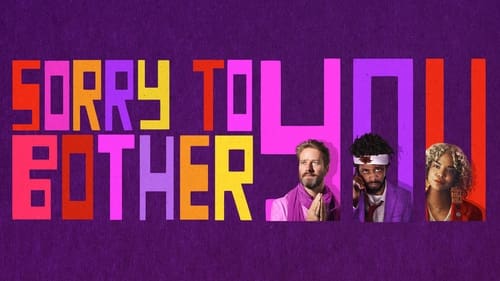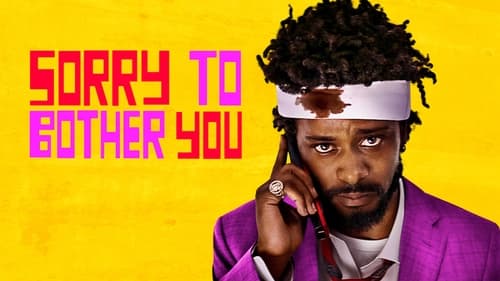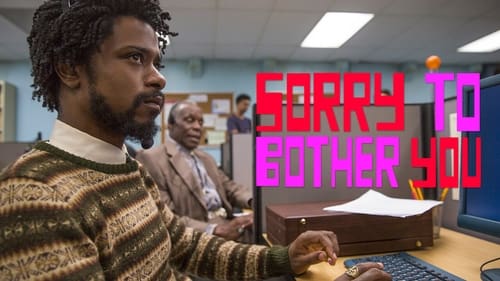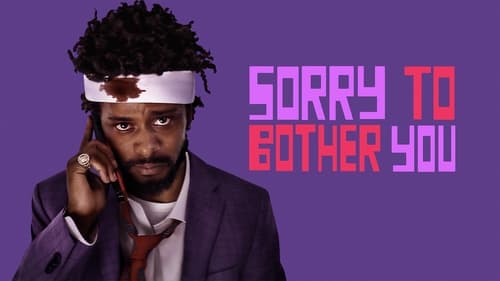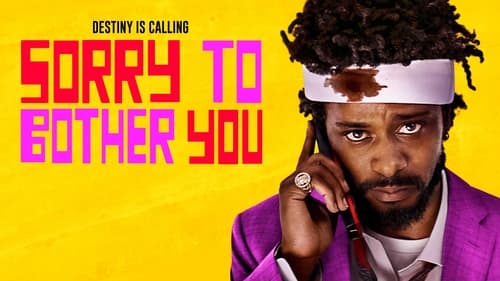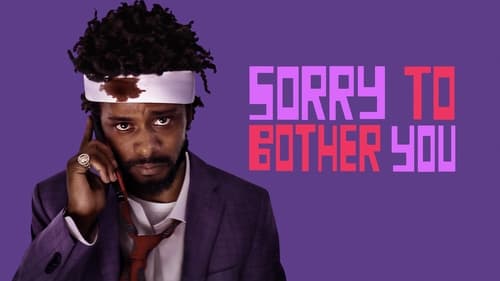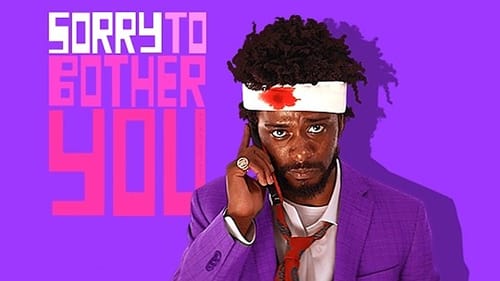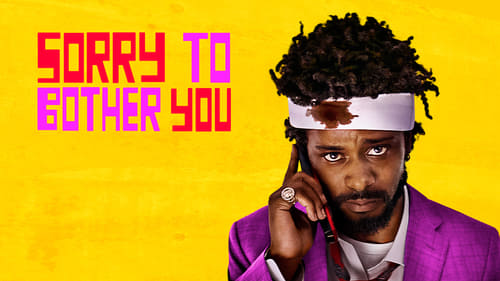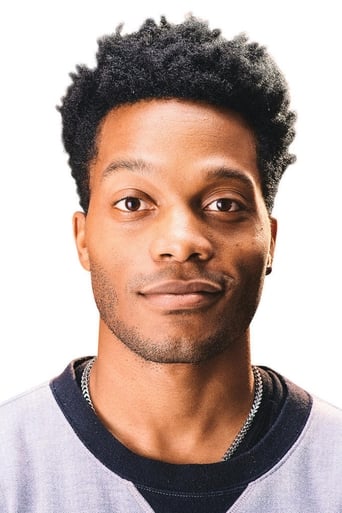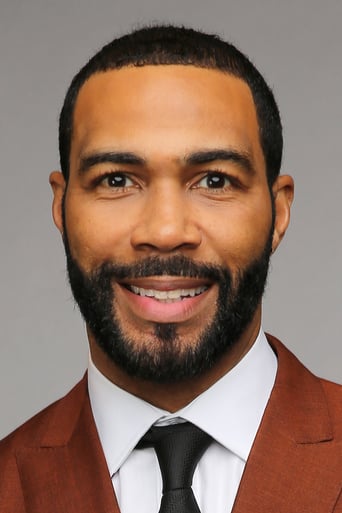ryandannar
Saw this awesome, bonkers indie film on Saturday called "Sorry to Bother You." It was one of those rare occasions when I've been able to go into a film knowing little-to-nothing about it. My friend invited me out, told me that the film was sort of a cross between "Get Out" and "Dear White People," and that was all I knew. Having seen it, I'd offer a slightly revised assessment: It's more like "Get Out" crossed with "Office Space," as filtered through the madness of Terry Gilliam's "Brazil," with more than a dash of inspiration taken from Michel Gondry's charmingly low-fi effects work.That's a mouthful of references there, I know. Trust me, the film more than earns each of those, and more. It is the feature debut of writer/director Boots Riley, a former telemarketer who first made a name for himself as the lead rapper and producer of The Coup, a politically-conscious rap-band from Oakland, CA. One can sense a wealth of life-experience and long-gestating ideas poured into this film. The film is so energetic, original, and irrepressible, it feels as if Riley and his crew had been itching for years to make this feature -- and then, when finally given the chance, held absolutely nothing back. What they have ended up with is a fantastical and deeply funny satire about capitalism run amok.The plot, in a nutshell: Cassius Green (Lakeith Stanfield) is a black man in his early 20s, low-key, smart but directionless. He lives with his artistic and politically-conscious girlfriend in an apartment in his uncle's garage in Oakland. He needs money! And so, as the film opens, he's applying for a job at RegalView Telemarketing. The interview goes well enough -- the manager essentially tells Cassius they'll hire anyone with a pulse -- and soon Cassius finds himself on the phone, hawking what sounds like a set of encyclopedias.From its opening moments, the film is giving us clues that it's not interested in a realistic depiction of actual life. Cassius's world is strangely exaggerated, a satirical funhouse-mirror reflection of the actual world. For example: When Cassius is in his cubicle at RegalView, the camera often frames him up against the window of an office across the hallway behind him. Through that window, a xerox-machine flashes ominously, paper flies everywhere, and men in suits frantically wave their arms around. This is never commented upon, which is probably why I found it such a delightful and funny flourish.But as funny and as visually inventive as the film is, it finds perhaps its best gimmick in the way it depicts Cassius's phone-calls. When the computer Cassius is using connects him suddenly with a new customer, he's literally dropped out of his cubicle -- desk and all -- into the customer's life, interrupting whatever it was they were doing. He can see them, but they can't see him. This results in some very funny moments, but it's also a brilliant way of illustrating Cassius's emotional response to these calls. Who is he, to be invading these people's lives unwanted? Having worked at a few call-centers myself, I could definitely feel some real-life experience invested into these moments. Cassius adjusts, as he must, to the strange realities of his new job, but he isn't doing very well at it until a co-worker (played by Danny Glover!) tells him that he'll get more sales if he uses his "white voice." Cassius thinks about it, then tries it, and naturally finds his success-rate skyrocket.Here again, the film has a very clever gimmick. Rather than have its black actors simply do their best "white folk" impersonation, the film actually OVERDUBS their voices with those of white comedians, such as David Cross and Patton Oswalt. If this makes you feel uneasy -- if the blatant replacement of black voices with white ones reads a bit like "censorship" -- that is most definitely the point. Fortunately, it's also funny, and so are most of the film's most pointed satirical jabs. This is a politically-minded film which never feels too preachy, because -- like "Get Out" -- its social criticisms are wrapped-up in such an entertaining package.There is so much more to this film, I have hardly even scratched the surface. A very satisfying film surely could have been made out of what little plot I have already described. And yet, Boots Riley has not settled for a simple workplace satire. His debut film is bigger, and weirder, than most sane people would probably imagine. Every time you think you've finally got your head around the film, it reveals strange and funny new territory.So the film is, shall we say, "overstuffed." That can be a bad thing. I've seen many a film try to pack way too many ideas into a two-hour runtime, only to end up a disorganized mess. What sets "Sorry to Bother You" apart, I think, is the thematic unity of the film. As crazy as the film gets -- and it DOES get crazy, taking a turn into science-fiction at the end which might be one turn too many for some viewers -- everything remains very directly related to the film's satirical concerns.It also helps that the film is bolstered by some very strong performances. Lakeith Stanfield is excellent as Cassius, bringing sweet naivite to a role which requires him to, at times, play a man misguided by profit (or its promise) into morally-compromising positions. Tessa Thompson is kinetic as Detroit, Cassius's artistic girlfriend, whose social-conscience will prove (for him) a point of conflict. And Armie Hammer oozes evil cluelessness as Steve Lift, the founder of a "lifetime-contract housing and employment" empire called "WorryFree," which is obviously patterned after the American prison system.
One other note: If you think you've seen Lakeith Stanfield before, it might be because he was the man abducted in the opening scene of "Get Out." Which is a pretty neat meta-connection between the two films.Anyway, I'll readily admit that "Sorry to Bother You" is a strange hot mess of a film -- but I think it's an inspired mess, and perhaps even a brilliant one. If you're in the mood for a comedy that might make you think, but will definitely make you go, "WTF!?" -- well, this is one to check out.







